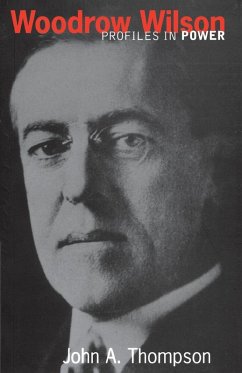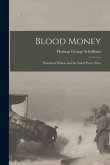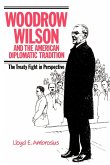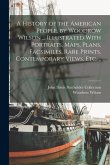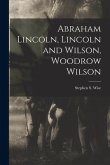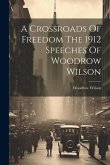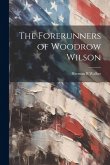Most famous in Europe for his efforts to establish the League of Nations under US leadership at the end of World War I, Woodrow Wilson stands as one of America's most influential and visionary presidents. Seen by both admirers and critics as an idealist and a heroic martyr to the cause of internationalism, John Thompson takes a different view.
As President of the United States, 1913-21, Woodrow Wilson directed American foreign policy during the First World War, leading the United States into the conflict in 1917 and playing a major role at the Paris peace conference. He is one of the most significant figures of twentieth century history. This profile, which is based upon the recently-completed publication of the Wilson Papers, presents a fresh view of his career. It provides an integrated interpretation of his academic career as a political scientist and university president, his style as a domestic politician and his conduct of foreign policy - topics that have generally been treated separately and very differently. It shows that, from an early age, Wilson's chief interest was in the nature of political leadership in a democracy, and describes the great success he enjoyed when he had an opportunity to practice this role himself. Although his ultimate failure to persuade the Senate to accept the League of Nations has left a misleading impression that Wilson was an unrealistic visionary, it took great political skill to lead a largely united country into its first major attempt to shape the world beyond the Western Hemisphere. Thompson s book presents an alternative, more rounded and ultimately more positive portrait of this major President, showing that he was a very able and pragmatic politician. John S. Thompson is Fellow of St Catharine s College, Cambridge. He is the author of Reformers and War: American Progressive Publicists and the First World War (1987).
As President of the United States, 1913-21, Woodrow Wilson directed American foreign policy during the First World War, leading the United States into the conflict in 1917 and playing a major role at the Paris peace conference. He is one of the most significant figures of twentieth century history. This profile, which is based upon the recently-completed publication of the Wilson Papers, presents a fresh view of his career. It provides an integrated interpretation of his academic career as a political scientist and university president, his style as a domestic politician and his conduct of foreign policy - topics that have generally been treated separately and very differently. It shows that, from an early age, Wilson's chief interest was in the nature of political leadership in a democracy, and describes the great success he enjoyed when he had an opportunity to practice this role himself. Although his ultimate failure to persuade the Senate to accept the League of Nations has left a misleading impression that Wilson was an unrealistic visionary, it took great political skill to lead a largely united country into its first major attempt to shape the world beyond the Western Hemisphere. Thompson s book presents an alternative, more rounded and ultimately more positive portrait of this major President, showing that he was a very able and pragmatic politician. John S. Thompson is Fellow of St Catharine s College, Cambridge. He is the author of Reformers and War: American Progressive Publicists and the First World War (1987).

